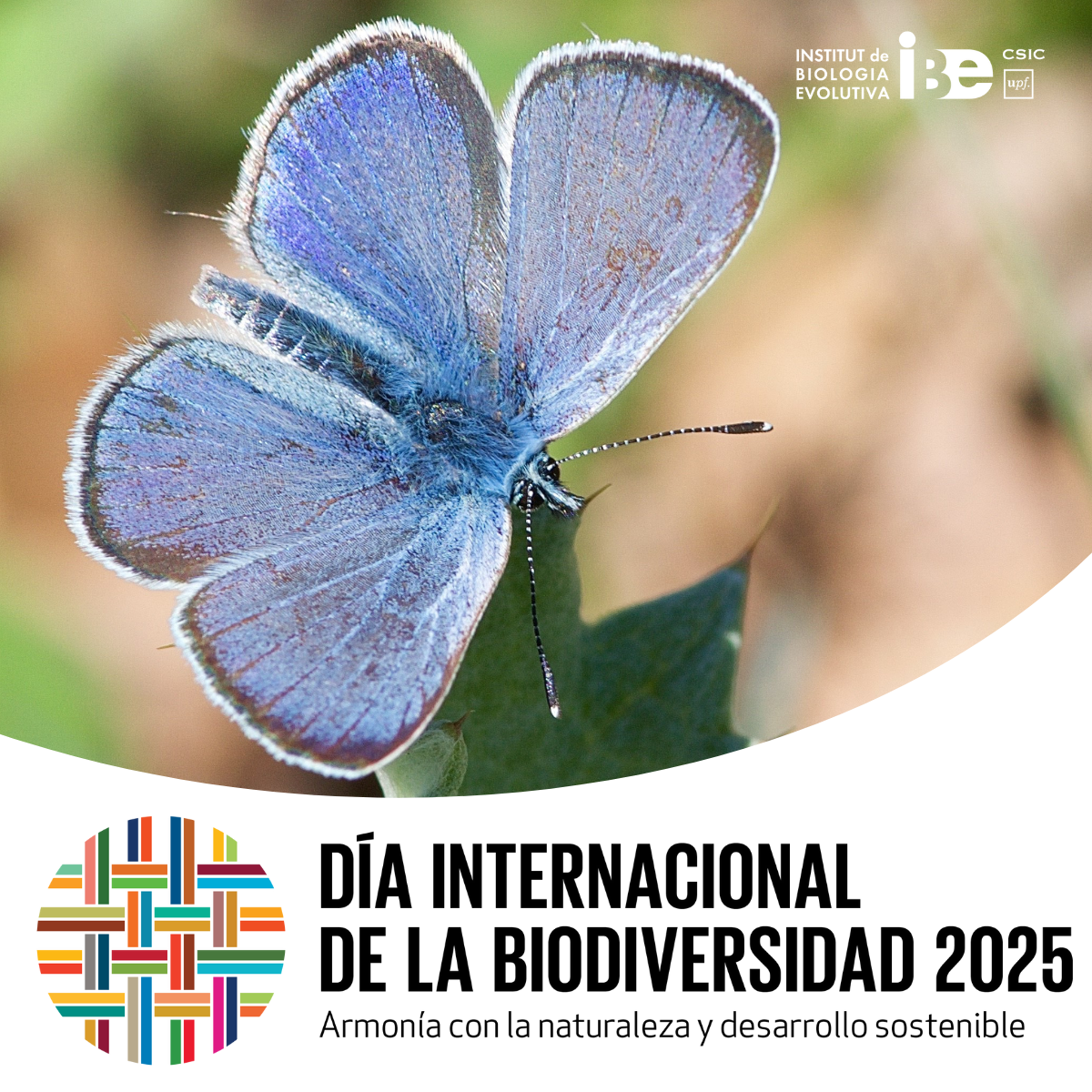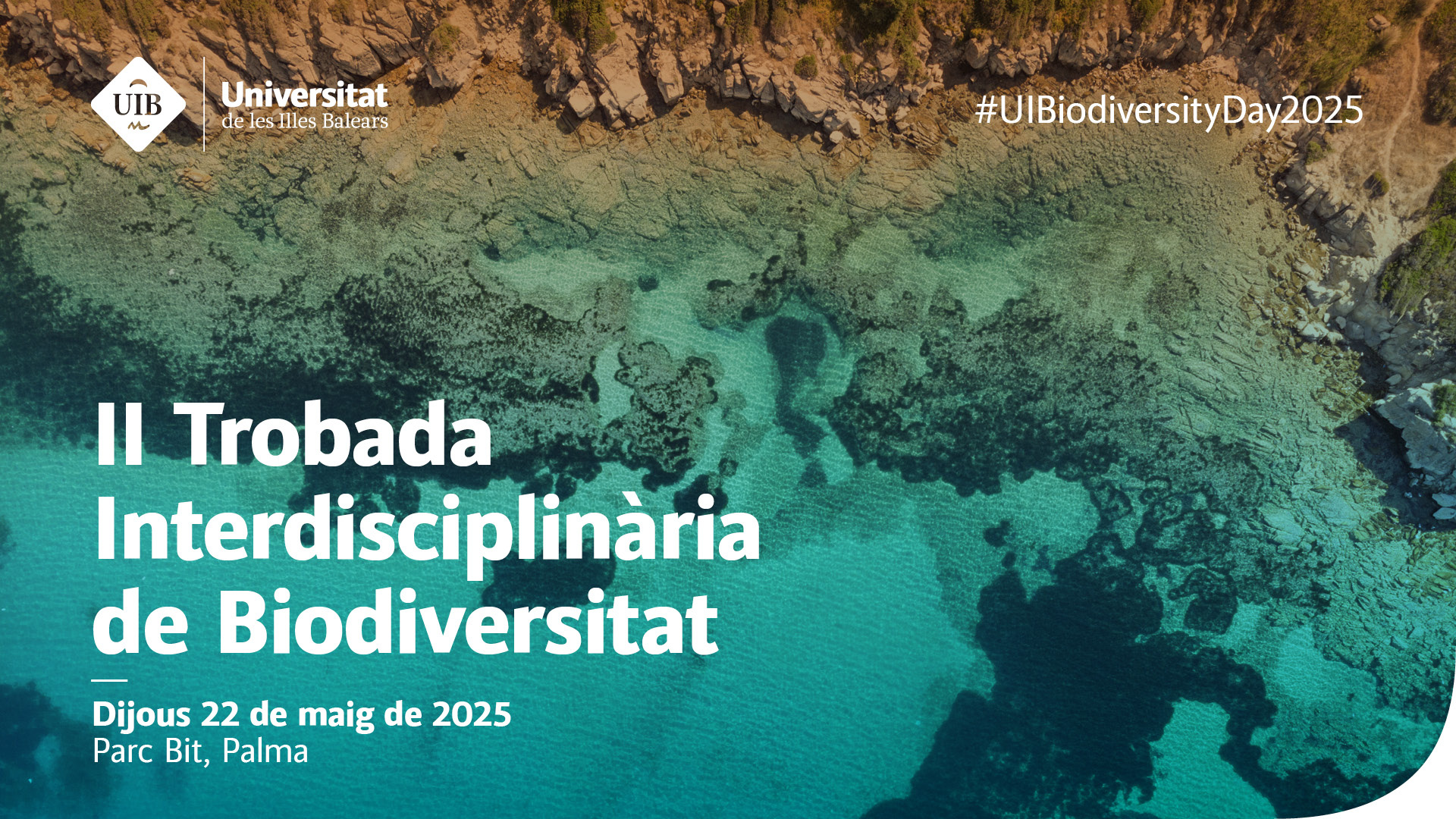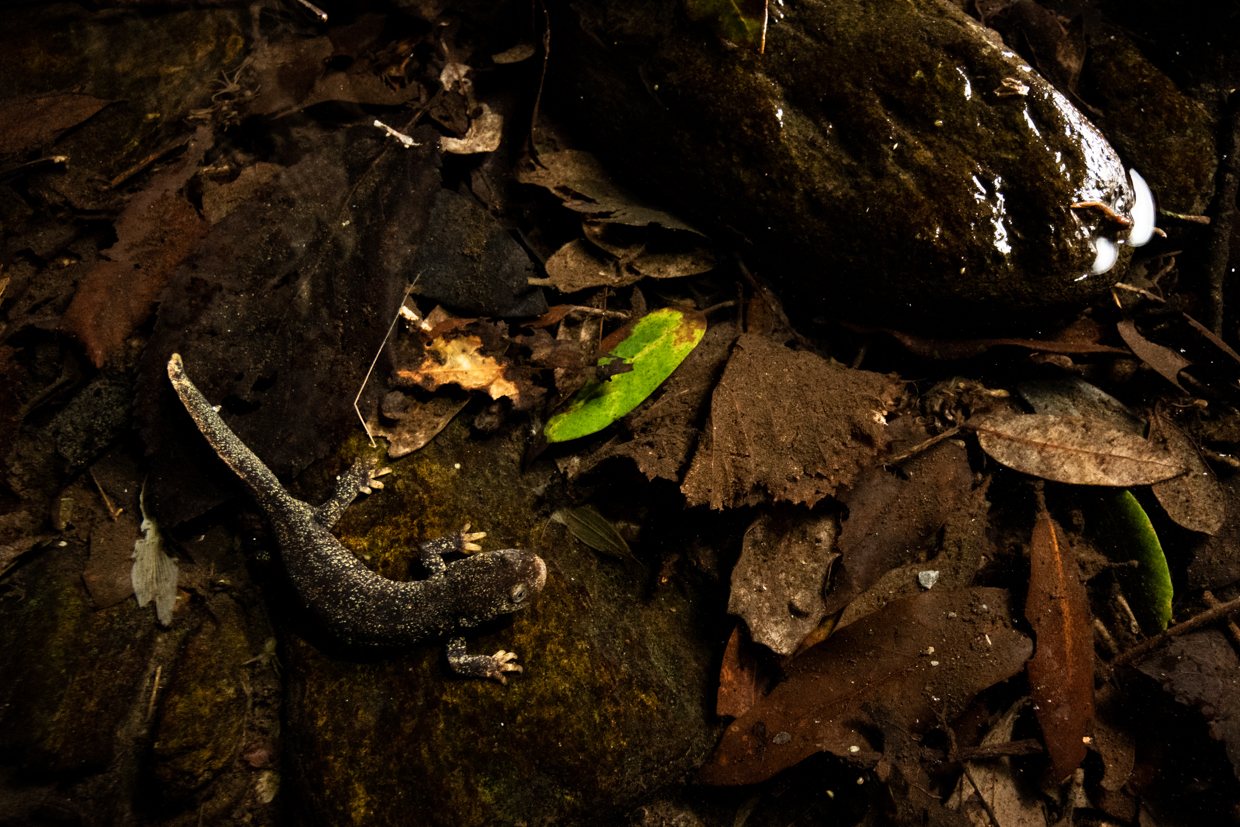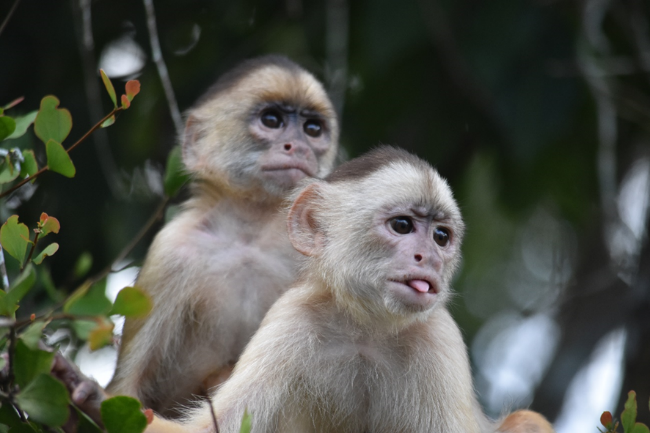Dia Internacional de la Biodiversitat a l’IBE
Dia Internacional de la Biodiversitat a l’IBE

Amb motiu del Dia Internacional de la Biodiversitat, l’Institut de Biologia Evolutiva (IBE; CSIC-UPF) se suma, un any més, a la commemoració global impulsada per les Nacions Unides, enguany sota el lema “Harmonia amb la natura i desenvolupament sostenible”.
Des de l’IBE, donem visibilitat a la recerca dels nostres grups que treballen activament per desxifrar l’evolució, descobrir vida i conservar la biodiversitat del planeta.
II Trobada Interdisciplinària de la Biodiversitat
El 22 de maig l’IBE i el Centre Balear de Biodiversitat de la Universitat de les Illes Balears (CBB-UIB) organitzen la segona edició de la Trobada Interdisciplinària de la Biodiversitat a Palma (Mallorca).
La trobada té l’objectiu d’abordar de manera conjunta els grans reptes que afronta la comunitat científica en el context de la crisi global de biodiversitat per a contribuir al benestar del planeta. Saber-ne més.

Evolució i genòmica per la biodiversitat
La biodiversitat és un dels grans eixos de recerca de l’IBE, com mostren els següents projectes:
Els 8 Magnífics del Multicellgenome Lab de l’IBE
Segons les darreres estimacions, encara desconeixem el 80 % de les espècies del planeta la majoria invisibles als nostres ulls, com els protists.
Amb la seqüenciació d’ADN ambiental, el laboratori Multicellgenome de l’IBE està desxifrant la diversitat d’aquests microbis i lidera la recerca dels anomenats 8 Magnífics.
Protists amb el Laboratori de Biologia i Ecologia dels Protists Abundants
El laboratori liderat per Daniel Richter investiga els protists més abundants del planeta, un grup encara poc conegut però potencialment clau en la cadena tròfica marina.
Els protists representen una part important de la biomassa del plàncton, i l’equip de l’IBE treballa per cultivar-los i identificar-los per primera vegada. Més informació.
Genòmica per la biodiversitat global
Les Nacions Unides reconeixen el paper fonamental de la informació genètica digital oberta per a la conservació.
Projectes com l’Earth BioGenome Project (EBP) volen catalogar el genoma de totes les espècies eucariotes del planeta.
Des de Catalunya, la Catalan Initiative for the Earth BioGenome Project (CBP) hi contribueix activament, amb Javier del Campo, investigador de l’IBE, com a copresident.
A més, es calcula que 1 de cada 5 espècies europees (d’un total de 200.000) està en risc d’extinció. El projecte European Reference Genome Atlas (ERGA) treballa per caracteritzar la biodiversitat genòmica mundial amb la investigadora Rosa Fernández com a Oficial Científica.
Genòmica i conservació d’amfibis
El grup de Sistemàtica, Biogeografia i Evolució de Rèptils i Amfibis, liderat per Salvador Carranza, ha aplicat la genòmica per estudiar l’amfibi més amenaçat d’Europa.
Gràcies a aquesta recerca, s’ha pogut descriure una nova subespècie: ara sabem que el tritó del Montseny (Calotriton arnoldi) no és una sola espècie, sinó dues subespècies que cal conservar.

Tritó del Montseny occidental. Crèdit a Adrián Talavera.
Salut i conservació de mamífers
El laboratori de Filogènia i filogeografia de mamífers liderat per José Castresana, desenvolupa tècniques per fer seguiment no invasiu d’espècies en perill per coneixe’n la seva salut.
Un exemple n’és l’almesquera - una espècie recentment afegida a la llista d’espèices en estat crític a Espanya - en què es detecten amenaces microbianes ocultes a partir de mostres fecals, mitjançant eines metagenomiques.
Evolució i genòmica dels primats
El grup liderat per Tomàs Marquès-Bonet estudia la genòmica dels primats per entendre millor l’evolució humana, impulsar la recerca biomèdica i conservar la fauna salvatge.
Ho fan mitjançant mostres no invasives de poblacions difícils d’estudiar.
Coneixent els genomes d’altres espècies podem entendre què ens fa humans i quins gens influencien la nostra salut.

Caputxí de front blanc (Cebus unicolor) prop de Manaos, Brasil. Crèdit: Rebecca Still.
El Projecte Zoonomia
L’investigador Arcadi Navarro, juntament amb Tomàs Marquès-Bonet, ha participat en el Projecte Zoonomia, que ha seqüenciat els genomes de 240 espècies de mamífers per identificar claus genètiques per a la salut global.
Aquesta notícia ha comptat amb la col·laboració d’Ana Lozano, beneficiària de las III Ayudas CSIC-Fundación BBVA de Comunicación Científica. Contingut disponible també a X.
